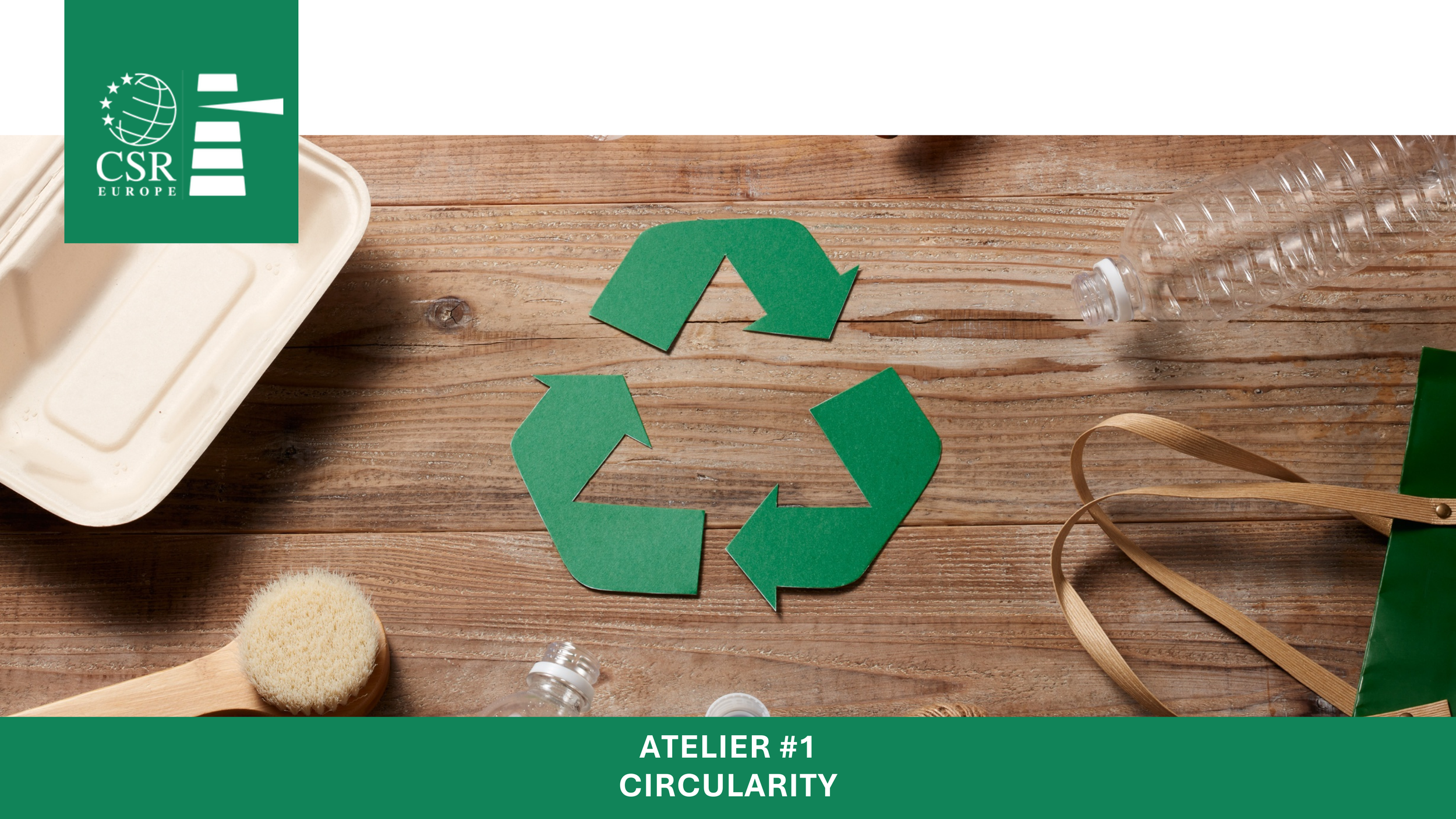EU Updates - April
Civil Society Calls on the EU to Include the Entire Value Chain in Due Diligence Regulation
The European proposal for a Corporate Sustainability Due Diligence Directive (CS3D) must cover businesses’ due diligence responsibilities across the entire value chain – including the end-use and disposal of company products and services – in line with the risk-based approach codified in the OECD Guidelines for Multinational Enterprises and United Nations Guiding Principles (UNGPs). This is the message at the core of the recent policy paper A little downstream goes a long way: How downstream due diligence can prevent and mitigate harm - published by a coalition of NGOs including Swedwatch, the Centre for Research on Multinational Corporations (SOMO), the European Center for Constitutional and Human Rights (ECCHR), OECD Watch, and the European Coalition for Corporate Justice (ECCJ). The document zooms in on five different sectors to discuss businesses’ responsibilities in addressing downstream human rights risks, including the manufacture and export of military and mining equipment, investments in fossil fuels and the sale of products such as pesticides.
CSR Europe has been engaging with some of its members on these topics since 2020. The result has been the development of:
A Responsible Sales Policy
A specific Human Rights Risk Assessment approach through customers’ engagement in human rights and environmental protection
Risk Impact Assessments for prioritised areas of concern
A model for stakeholders’ engagement.
Currently, CSR Europe is looking for companies interested in developing a total value chain approach on due diligence. If your company is looking forward to ensuring supply chain sustainability both upstream and downstream, please contact Stefan Crets.
EFRAG’s Consultation on the Second Set of Draft ESRS Exposure Drafts is Postponed
Businesses can expect a minimum one-year delay in the finalization of sector-specific standards. The halt came on 21 March, when the European Commissioner for financial services, financial stability and capital markets union, Mairead McGuiness, shared with EFRAG the Commission's request to focus on offering more assistance to businesses in the implementation of the initial set of European Sustainability Reporting Standards (ESRS) rather than creating sector-specific ESRS.
This, according to the Commission, is to avoid the challenges that would arise from holding two concurrent public consultations and simplify the EU's corporate reporting requirements.
As a result, EFRAG’s public consultation on sector-specific standards has also been postponed. In the meanwhile, EFRAG will continue to work on developing the SME standards, even though the public consultation on these standards has been also postponed.
According to its original action plan, EFRAG was expected to open a consultation on the second set of draft ESRS Exposure Drafts (ED). The plan foresaw at the beginning included the following two steps:
At beginning of April a 100-day consultation period on:
draft SEC 1 (ESRS Sector classification system)
draft ESRS on Coal and Mining
draft ESRS on Oil and Gas (upstream and downstream)
At the beginning of May (with a 90-days consultation period):
draft ESRS for Listed Small and Medium Enterprises (LSME)
draft Agriculture, Farming and Fishing
draft Road Transport
More details on a renewed calendar of consultation will be released in the coming weeks.
For more information:
EU Affairs Senior Specialist
A Green Deal Industrial Plan to Boost Europe’s Sustainable and Green Transition
The European Commission's Green Deal Industrial Plan and Net Zero Act, both introduced at the beginning of 2023, aim to accelerate the transition to a sustainable and carbon-neutral economy in the European Union.
The Green Deal Industrial Plan, released in February, focuses on promoting clean technologies and sustainable practices across key industries, including energy, transport, and construction. The plan includes measures to support research and innovation, facilitate investment in green technologies, and promote sustainable production and consumption.
The Plan is composed of four key pillars:
Building a simpler regulatory framework
This includes developing a simpler, faster, and more predictable framework, securing raw material volumes, and ensuring users can benefit from renewables' low costs. This work is supported by three initiatives.
Speeding up investment and financing for clean tech production in Europe
The Commission will also make it easier to use existing EU funds to fund clean tech innovation, manufacturing, and deployment, with a particular emphasis on REPowerEU, InvestEU, and the Innovation Fund. The Commission will also consider establishing the European Sovereignty Fund as a mid-term structural solution to the investment needs.
Developing the skills needed for well-paid quality jobs will be a priority for the European Year of Skills.
The Commission will:
propose the establishment of Net-Zero Industry Academies to aid in the implementation of up-skilling and re-skilling programs in strategic industries
Consider how to combine a 'Skills-first' approach that recognizes actual skills with existing qualifications-based approaches.
Examine how to make it easier for third-country nationals to enter EU labour markets in priority sectors.
Look into ways to encourage and align public and private funding for skill development.
Making trade work for the green transition, under the principles of fair competition and open trade, builds on the engagements with the EU's partners and the work of the World Trade Organization.
The Net Zero Act, which together with the Critical Raw Materials Act is part of the first pillar of the Green Deal Industrial Plan, sets a target for the EU to achieve net-zero greenhouse gas emissions by 2050. The act includes a range of measures to reduce emissions, including increasing the use of renewable energy, promoting energy efficiency, and phasing out the use of fossil fuels.
Together, these initiatives represent a comprehensive approach to addressing the environmental challenges facing the EU. By promoting sustainable practices and reducing greenhouse gas emissions, the EU aims to lead the way in the transition to a more sustainable and equitable future.
For more information:
EU Affairs Senior Specialist
Get Ready for the European Diversity Month 2023
Every year, the European Commission celebrates the EU Diversity Month, a month-long initiative happening in May aimed at promoting diversity and inclusion in the EU. This year’s theme is focused on the importance of diversity and inclusion in the workplace and in society. The campaign highlights the benefits of a diverse and inclusive workforce, including increased creativity, better problem-solving, and improved decision-making. It also emphasizes the importance of creating a work environment that is welcoming and supportive of diversity.
The European Commission will:
hold a high-level event on Diversity on 27-28 April 2023 with the Commissioner for Equality, Helena Dalli.
award the work done by cities, towns, or regions in Europe to promote inclusion and create discrimination-free societies, through the European Capitals of Inclusion and Diversity Award.
At the same time, stakeholders organise dedicated activities, showcase them on the Diversity Month website, and engage with the Commission’s campaign on social media.
For more information:
EU Affairs Senior Specialist







